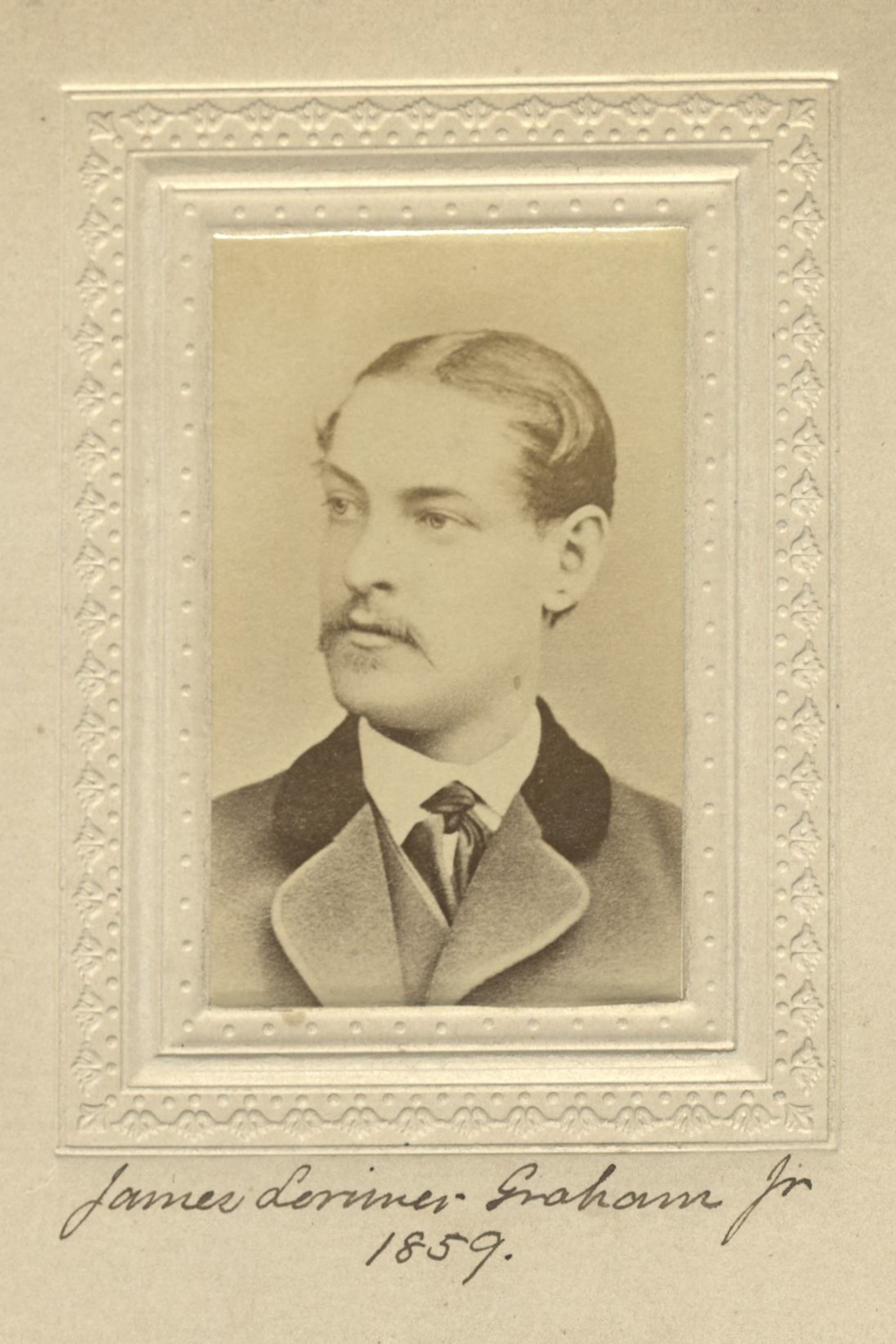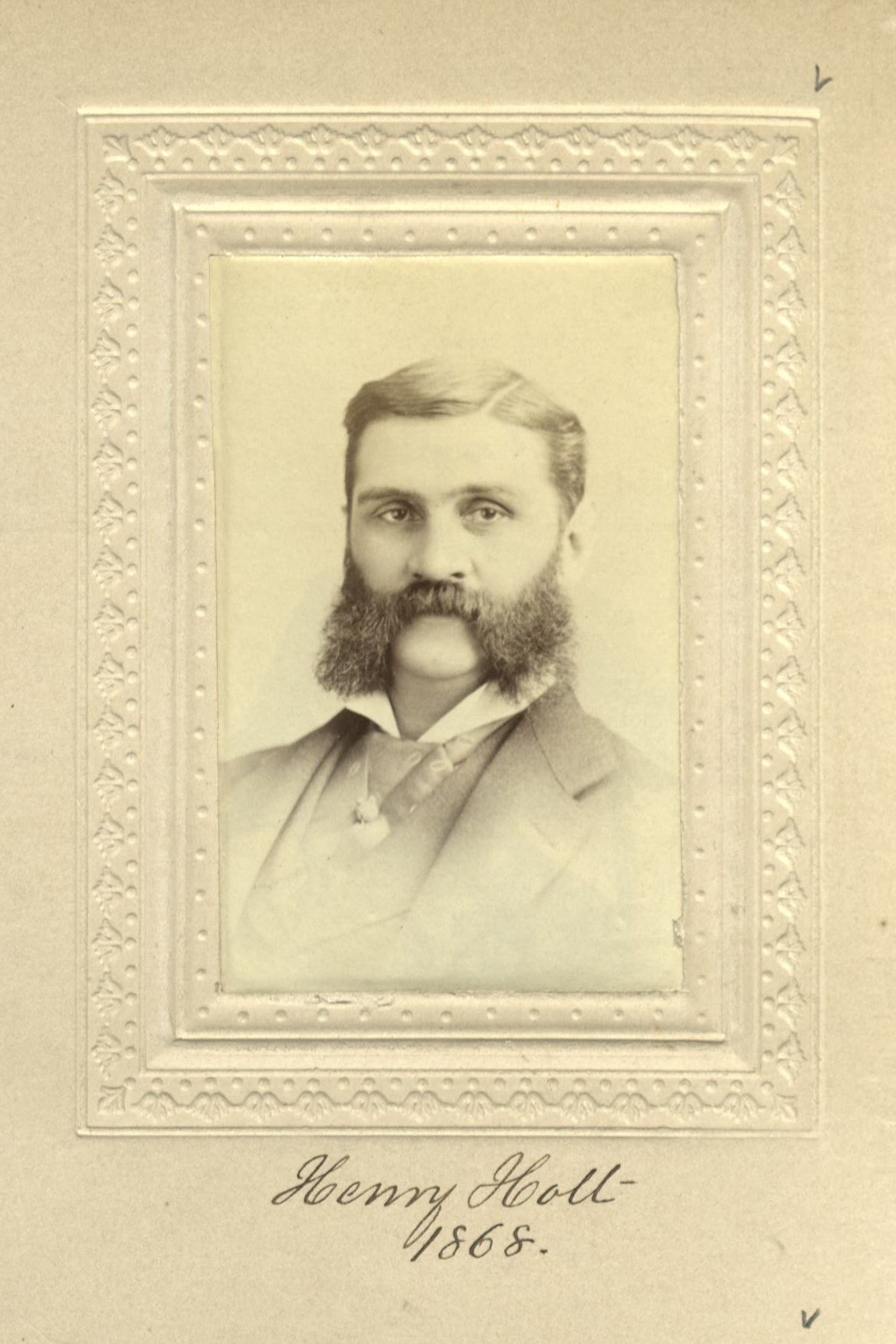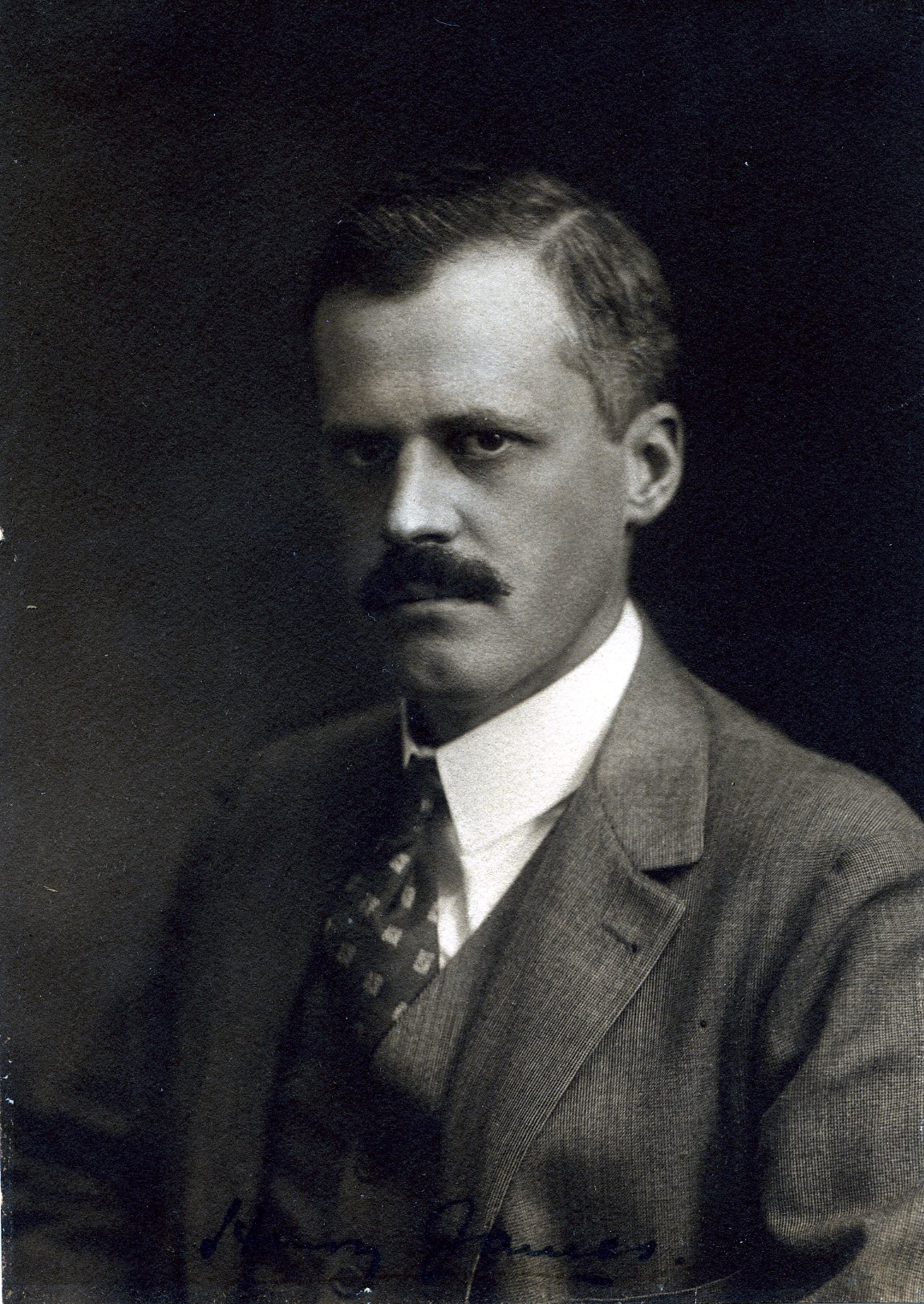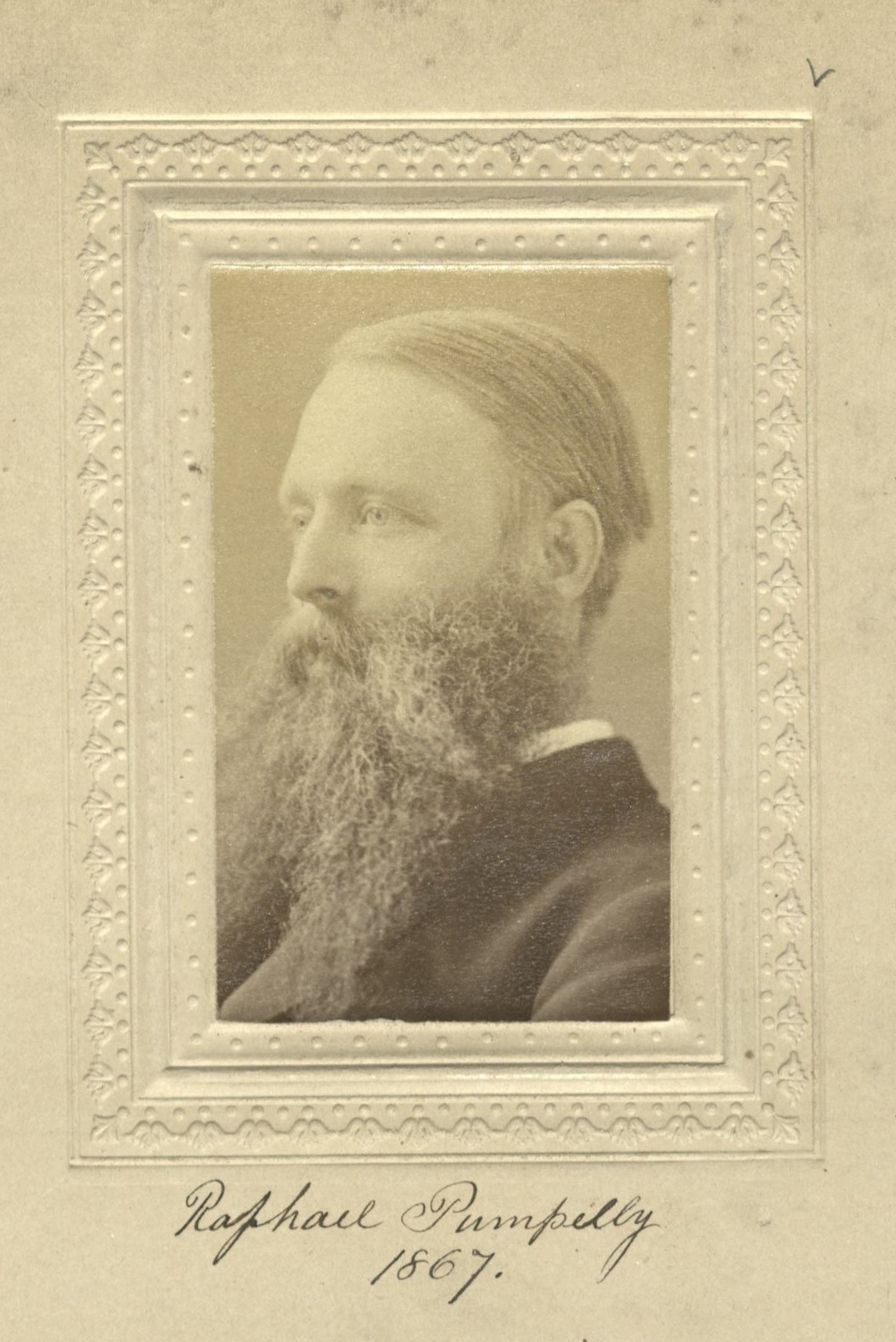Member Directory,
1847 - 1922
Raphael W. Pumpelly
Planter/Insurance
Centurion, 1915–1949
Henry Lloyd Smyth and Henry Holt
Newport, Rhode Island
Dublin, New Hampshire
Age thirty-three
Middletown, Rhode Island

Archivist’s Notes
Son of Raphael Pumpelly
Century Memorial
Raphael Welles Pumpelly. [Born] 1881. Mining Engineer.
His father was the fabulous Centurion Rafael Pumpelly—“His very name an invitation,” as our Centennial book says—who always was just back from Tibet or Japan or the turquoise South West—a great blue-eyed giant, with a long flowing beard, a vivacious tongue and a courtly manner.
This Centurion father was the most cosmopolitan citizen in the world. He had modernized the mines of medieval Japan at the time of our civil war; was an advisor of Li Hung Chang and Chinese Gordon in the celestial kingdom; became engineering explorer for the Tzar of Russia; surveyed the route for the Northern Pacific Railroad and had been head of the United States Geodetic Survey. He had a castle in Newport, a villa in Capri, had founded Dublin, New Hampshire, as a retreat from fashion, and had a forest estate in Georgia. He was familiar with the planet as most men know their backyards, and he seemed to know pretty nearly everybody in it.
At 30 the son of this fabulous man was himself an explorer and adventurer whose restless curiosity had carried him to the ends of the earth. He had followed Sven Hedin’s caravans from Samarcand to Lake Karakul and the Mongolian deserts; he had penetrated to Hudson Bay with a flotilla of Indian canoes; he had explored the coast of Alaska with what turned out to be a band of cutthroats, and he had undertaken single-handed to prospect for a mining company in the most dangerous and lawless regions of Mexico.
His idea was to examine the regions of the world to find a virgin garden spot that he could appropriate to found a dynasty: Asia, Patagonia, Indonesia, Uganda or Wyoming were all one to him.
Father Pumpelly had said to pay no attention to places where people had congregated, but to find the most intrinsically valuable and livable place with the fewest inhabitants and where land was cheap. Then he laid down this criterion. The genus Homo, he said, attains its greatest energy and satisfaction where the climate is not too rigorous and yet not subject to the lassitude of the tropics. There should exist the three requisites of civilization—heat, that is, abundant sunshine; water, abundant but not inundating rainfall; and a pliable, porous soil. He drew a band around the globe embracing the territory that met these requirements.
This isothermal line hit southern North Carolina on the nose. So, as Centurion Ralph W. Page, his partner, records it, “being less cosmic-minded than Pumpelly, I suggested that we explore that neighborhood before we took off to Samoa.” There they found the acreage they wanted and in 1917, as Father Pumpelly tells the story, “after six years of construction and development, including two of learning the fundamentals, he had, exclusive of the uncleared land, a plantation of about 800 acres well balanced between livestock, dairy, pasture, fodder, and money crops, including corn, cotton, tobacco, etc. He called it Samarcand after the old city on the Zerafshan River.”
Centurion Page continues the story: “He built a combination of suburban house and Moorish palace with his own hands, rode a wild mare bareback without a bridle, dressed in Russian boots, English whipcord riding trousers, a purple smoking jacket, a red bandana neckcloth and a ten gallon hat. He established a feudal kingdom on a kind of oriental pattern without the slightest regard to the astonished countryside.
“With a lordly conception he experimented on a grand scale. He planted orchards and vineyards, drained his land, ventured into extensive cultivation of cotton and tobacco, alfalfa, clover, Japanese persimmons, figs, droves of pigs, cattle and every sort of machinery and innovation. His wine cellar became famous—and to the local Methodists scandalous—and by the time the tide of settlers had set in, his hospitality regal.”
Pumpelly took a nap, you may remember, almost every day after lunch, on a long sofa in our Library and thereby earned a demi-immortality in Henry James’ article on the library in our Centennial Book: “one or two members may often be found sleeping peacefully in the Library’s shade. They show annoyance when awakened by inconsiderate fellow members who break the rule against loud conversation in the library. And why shouldn’t they be wroth? The Graham Room is there to accommodate men who talk best when surrounded by books. Moreover, the sleepers’ spirits must be presumed to have been communing with those of the poets, bookmen and patient draughtsmen whose works surround them on the shelves. Spirits never whisper deeper confidences to a devout and kindred presence than when eyes are closed and all around is still.”
What dreams he must have had! I wish I had known, as I saw him here, any of the things I have told you about him tonight. There should be some way to find out these things before a member dies.
Source: Henry Allen Moe Papers, Mss.B.M722. Reproduced by permission of American Philosophical Society Library & Museum, Philadelphia
Henry Allen Moe
Henry Allen Moe Papers, 1949 Memorials
Related Members
Member Directory Home-
 James L. Graham Jr.Diplomat/CollectorCenturion, 1859–1876
James L. Graham Jr.Diplomat/CollectorCenturion, 1859–1876 -
 Henry HoltPublisher/AuthorCenturion, 1868–1926
Henry HoltPublisher/AuthorCenturion, 1868–1926 -
 Henry JamesManager, Rockefeller InstituteCenturion, 1913–1947
Henry JamesManager, Rockefeller InstituteCenturion, 1913–1947 -
 Ralph Walter PageWriter/OrchardistCenturion, 1922–1963
Ralph Walter PageWriter/OrchardistCenturion, 1922–1963 -
 Raphael PumpellyGeologist/ExplorerCenturion, 1867–1923
Raphael PumpellyGeologist/ExplorerCenturion, 1867–1923 -
 Henry Lloyd SmythGeologistCenturion, 1903–1943
Henry Lloyd SmythGeologistCenturion, 1903–1943




